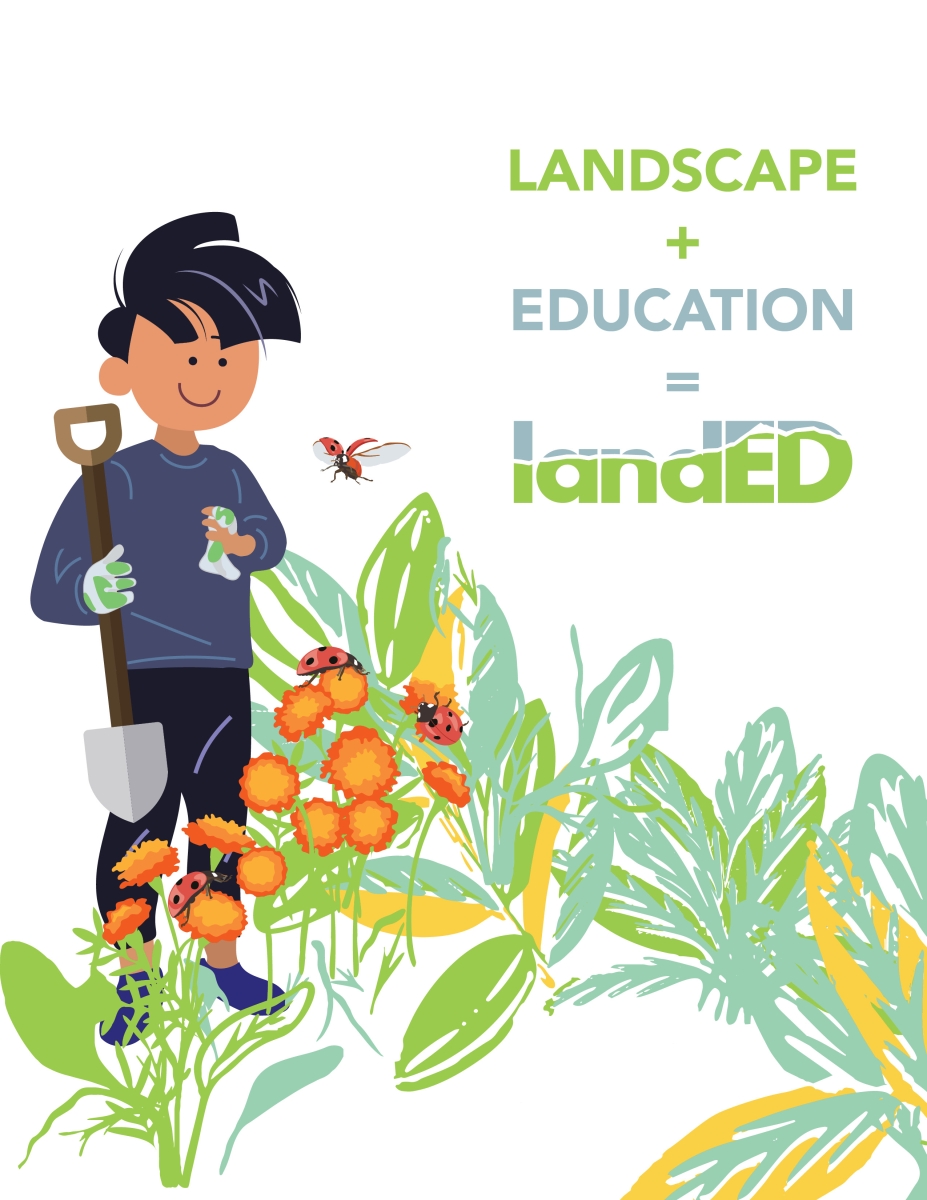LACF is proud to showcase standout communication publications supported by the Foundation that promote and advance the ideals of the profession of landscape architecture in enduring ways. These published resources contribute to increasing understanding about the Canadian landscape, its history and the experience of landscape through design, people, practice and creativity. LACF is proud to have provided seed-funding for these essential works.

1. Innate Terrain: Canadian Landscape Architecture
Innate Terrain: Canadian Landscape Architecture, is a book that is concerned with the practice and theories of Canadian landscape architecture. It is edited by Alissa North with a Foreword by Ron Williams, and includes chapters written by Canadian landscape architectural scholars and practitioners, which document the breadth of contemporary practice from across the country. The chapter authors use these works of landscape architecture to theorize a distinct approach practiced by Canadian landscape architects in their national context. The book’s central argument is that Canadian landscape architecture is distinct because of the unique qualities of the Canadian terrain and the particular relationship that Canadians hold with the landscapes of our nation.
Portfolio Archive #171
2. A Story Map for Toronto’s Potential Landscape System
Toronto’s system of lakefront and ravine landscapes is its most valuable resource, but despite a legacy of conservation through the efforts of the Toronto Region Conservation Authority and City initiatives like the Ravine Strategy, many gaps still exist, particularly through lower income neighbourhoods. Toronto’s network of diverse landscapes is almost, but not quite yet, a Metropolitan Park System like Boston’s or Chicago’s. This online GIS Story Map of Toronto’s Potential Landscape System will raise awareness of the value of its natural heritage, cultivate a community of advocates for the protection, restoration, and improvement of the lakefront and ravines and work toward the realization of the larger regional connected system.
Toronto has a legacy of strong community advocacy for conservation and re-naturalization, which have led to some of the unique places in our city such as the Leslie Spit, the Meadoway, the Toronto Islands, the re-naturalization of the Lower Don River, and the more recent efforts to protect ravine landscapes from infrastructure construction projects. This initiative follows in the footsteps of Anne Spirn’s West Philadelphia Project, engaging the creativity of students and communities to support the implementation of the City of Toronto’s Ravine Strategy, and to serve as an educational and advocacy tool to cultivate an informed public that will value and protect the city’s landscape system in perpetuity.
Portfolio Archive #173

3. landED Green Guide: The How-to Manual for Schoolyard Sustainability
The purpose of the landED Green Guide is to provide a landscape sustainability document that supports Canadian schools in understanding and maintaining their outdoor learning space. We aim to take the traditional landscape handover document and reframe it for accessible, long-term school use.
Landscape projects at schools are championed by passionate teachers and parents. A high rate of turnover in these parties results in new community leaders missing information about the original landscape design intentions. The guide will act as a connecting thread between generations as students graduate, and their parents move on to join other councils. It will help new teachers become acquainted with their space when staff change schools. It will also offer activity suggestions to teacher candidates whose time with a class is limited.
It is our hope that the landED Green Guide inspires landscape stewardship in educators, parents, and students, by expanding the base of knowledge keepers. By sharing the guide, the spirit of the landscape architect will remain in the schoolyard space, long after we have completed our contracted work.
Portfolio Archive #176

4. A Landscape Approach: From Local Communities to Territorial Systems
‘A Landscape Approach’ will be the second book published by the International Landscape Collaborative (ILC), featuring emerging voices from diverse disciplines, sectors, geographies and cultural contexts to expand the discourse of landscape architecture toward new models of interdisciplinary collaborative practice. The edited volume of essays will explore the ‘landscape approach’ as a method for understanding and addressing the complex interdependent issues of climate change, ecological degradation, urban growth and resilience, by linking urban landscapes and infrastructures to regional watersheds and socio-ecological processes. The book project will be complemented by a two-day summit in Toronto on May 27-28, 2022, gathering an international network of participants to discuss landscape approaches to regional planning, infrastructure and city building processes, and learn from successful multidisciplinary and community collaborations that have contributed to Toronto’s emerging landscape framework.
